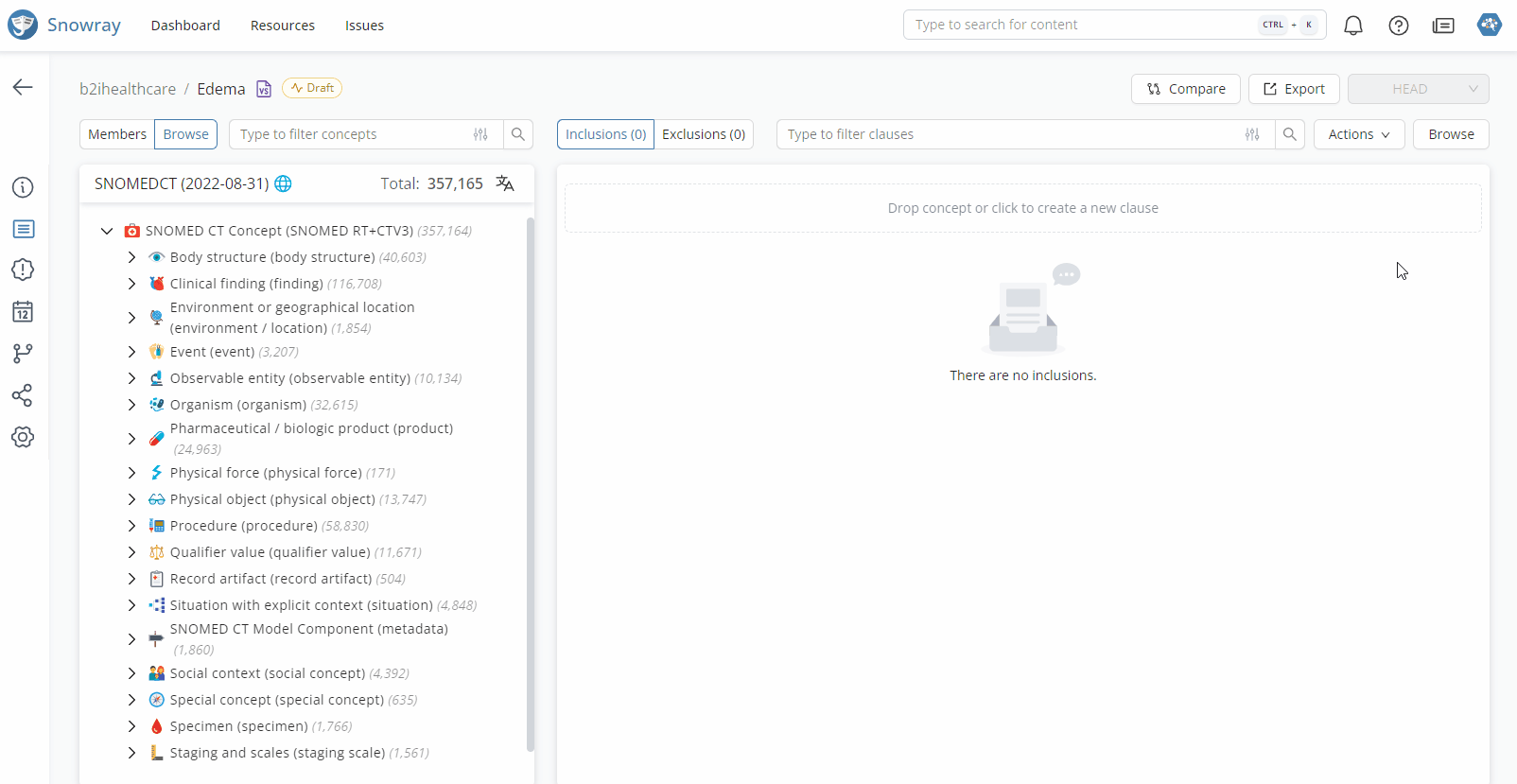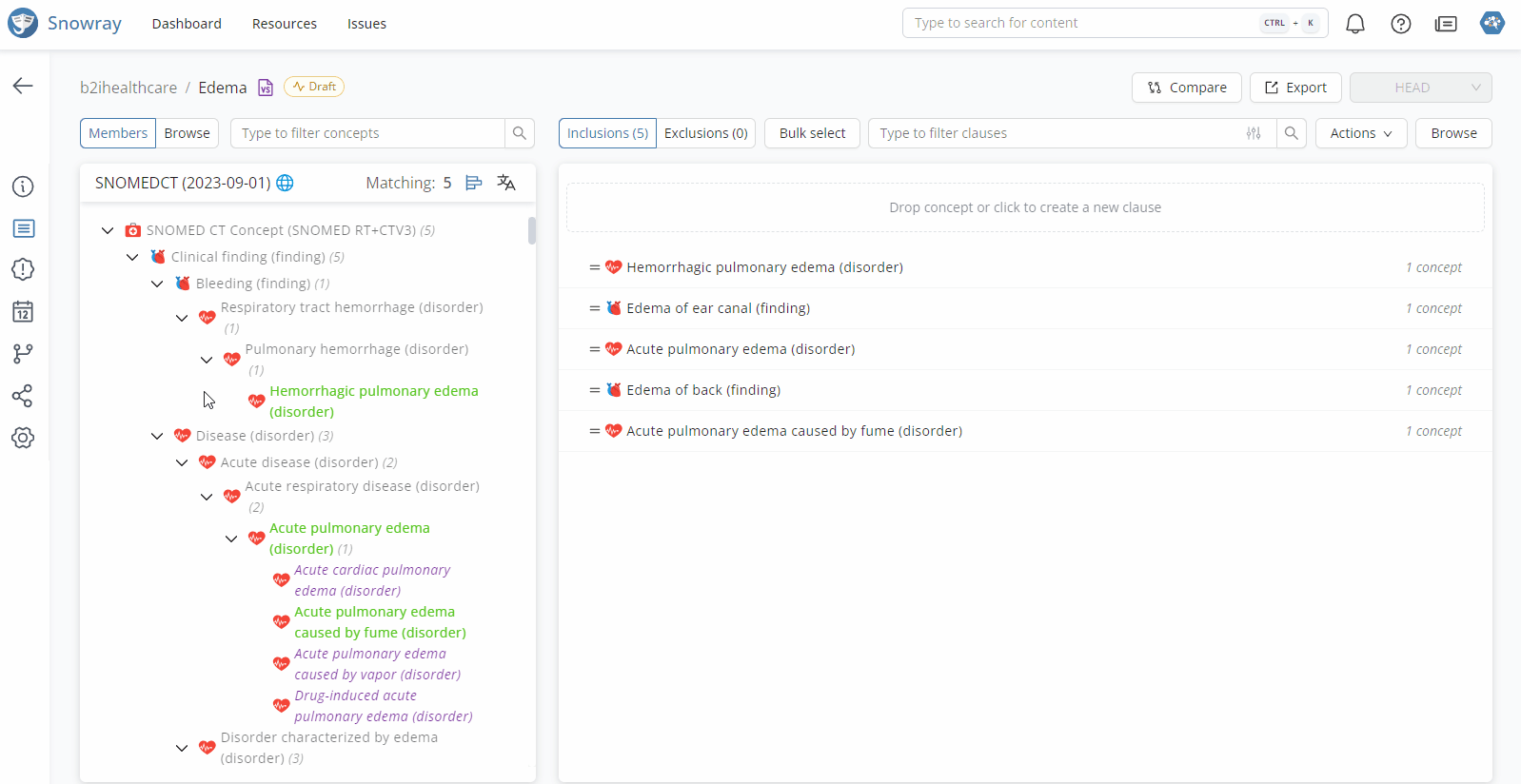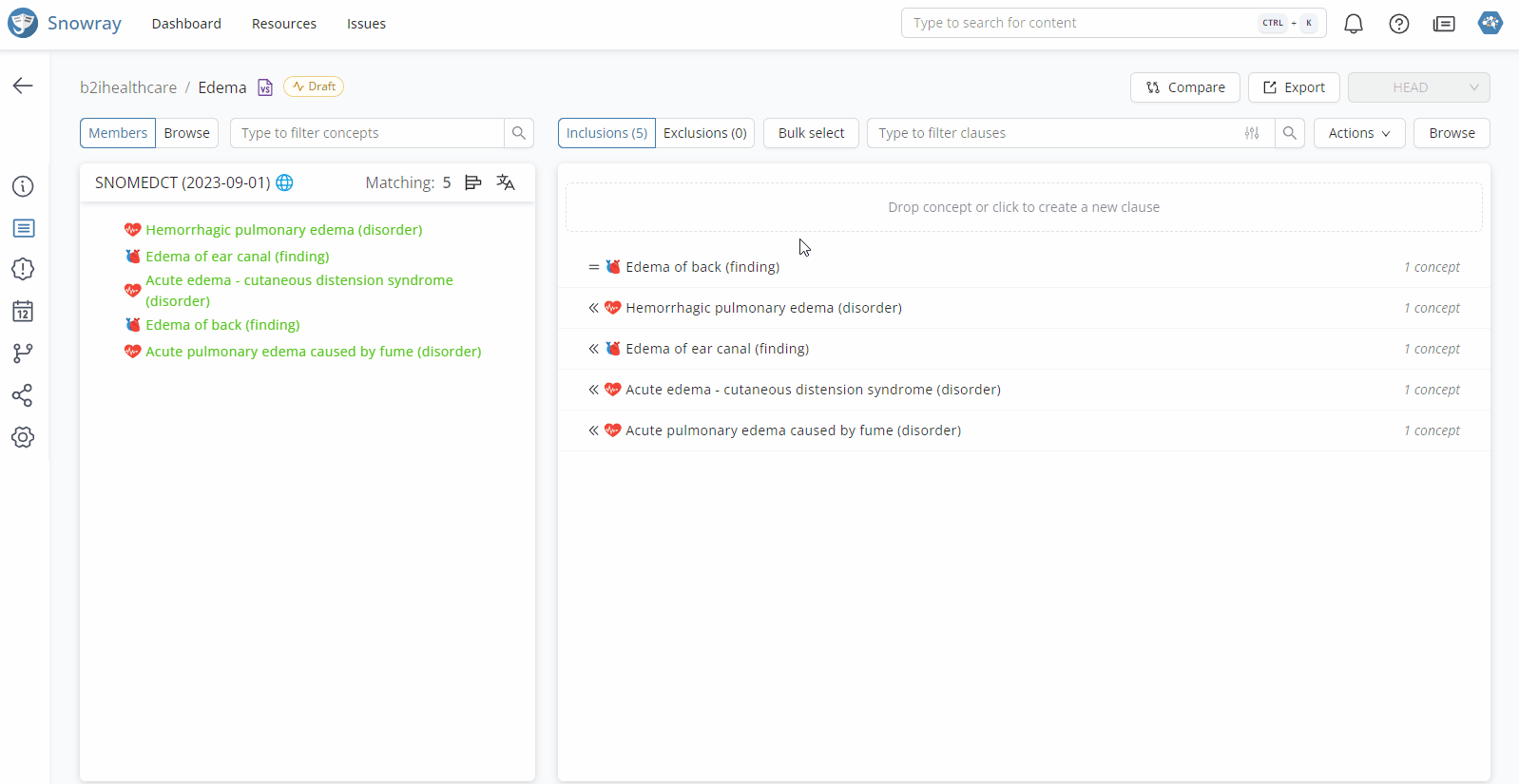Authoring
To enter editing mode and access functionalities related to authoring, click on the![]() button in the upper right corner of the selected Value Set's content page.
button in the upper right corner of the selected Value Set's content page.
Add a New Clause
New clauses can be added by constructing a query expression supported by the domain Code System after clicking on the area surrounded by an intermittent line under the Inclusions and Exclusions sections.
Most of the terminologies support Expression Constraint Language to a certain extent, e.g. selecting a hierarchy via < or << or filter by attribute refinements. If such support is not available for the given Code System, then single ID inclusions/exclusions can be created forming an extensional Value Set at the end.

While authoring, clauses highlight parts of the hierarchy with colors. These help identify which part of the hierarchy is included (green and/or normal gray), excluded (red), suggested (purple), or just displayed as contextual information (light gray).
If you select a concept from the terminology tree, the clause that involves the concept will be highlighted in the clause list.

For more information about the different ways to add clauses to a Value Set, visit the following pages:
Drag and DropBasic Clause EditorPaste from clipboardImport clauses from text fileAdvanced Clause EditorMergeEdit Clause
Hovering over an existing clause reveals the icon, which enables editing the selected clause. Changes can be persisted by clicking on the
sign.

Hovering over a clause also reveals the icon, which enables pinning the selected clause to the top of the list.
For more information about additional editing actions, visit the following pages:
Update OperatorsECL syntax errorInactive contentRevertOptimize
As part of the authoring process, users also have the option to optimize their Value Sets. This feature simplifies Value Sets by replacing individual members with ECL expressions. For example, if all the children of a concept are added, it will reduce the clauses to a single clause using the following format: < parentId | FSN |.
To use this option, navigate to the specific Value Set and start editing. Press the ![]() button in the upper right corner and select the Optimize context menu option.
button in the upper right corner and select the Optimize context menu option.

To confirm the proposed plan, press the ![]() button.
button.
Was this helpful?
